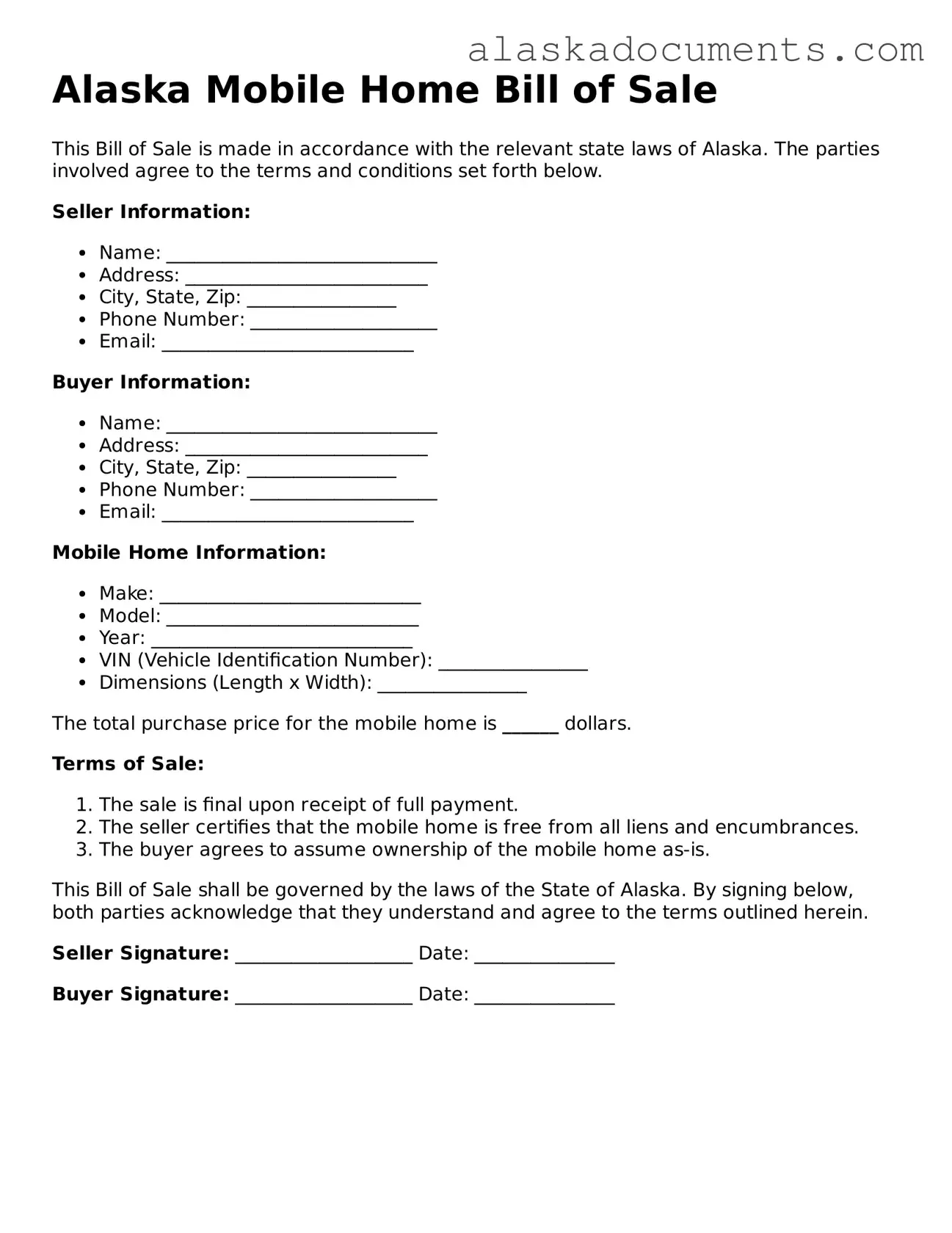The Alaska Mobile Home Bill of Sale form shares similarities with the standard Vehicle Bill of Sale. Both documents serve the purpose of transferring ownership from a seller to a buyer. They typically include essential details such as the names and addresses of the parties involved, a description of the item being sold, and the sale price. This ensures that both parties have a clear understanding of the transaction. Furthermore, both forms may require signatures from both the seller and buyer to validate the agreement, providing legal protection for both parties in case of disputes.
For those looking to complete their documentation, the simple trailer bill of sale setup provides a straightforward solution. This form ensures that all necessary details are accurately recorded, facilitating the transfer of ownership smoothly.
Another document that resembles the Alaska Mobile Home Bill of Sale is the Boat Bill of Sale. Like the mobile home form, this document is used to transfer ownership of a vessel. It includes similar elements such as the buyer's and seller's information, a detailed description of the boat, and the sale amount. This ensures that the transaction is documented thoroughly, which is crucial for registering the boat with the appropriate authorities. Both documents are often used in recreational contexts, highlighting the importance of proper ownership documentation in various types of property transfers.
The Real Estate Purchase Agreement is another document that shares characteristics with the Mobile Home Bill of Sale. While the former pertains to the sale of land and structures, both documents emphasize the importance of clear terms and conditions. They outline the responsibilities of the buyer and seller, including payment details and contingencies. Both agreements also require signatures to finalize the transaction, ensuring that both parties are legally bound to the terms outlined. This commonality underscores the significance of formal agreements in real estate and personal property transactions alike.
Additionally, the Equipment Bill of Sale is similar in function to the Alaska Mobile Home Bill of Sale. This document is used when transferring ownership of equipment, which can range from machinery to tools. Like the mobile home form, it includes the names of the buyer and seller, a description of the equipment, and the agreed-upon price. Both documents serve to protect the interests of both parties by providing a record of the sale. This is particularly important in business contexts where equipment ownership can impact operations and financial arrangements.
Lastly, the Personal Property Bill of Sale also aligns closely with the Alaska Mobile Home Bill of Sale. This document is used for the sale of tangible personal property, encompassing a wide range of items from furniture to electronics. Similar to the mobile home form, it includes key information about the buyer and seller, a description of the item, and the sale price. The Personal Property Bill of Sale serves to formalize the transaction, providing a written record that can be useful for both parties in case of future disputes or for tax purposes. The emphasis on documentation in both forms highlights the importance of clarity and accountability in property transactions.

